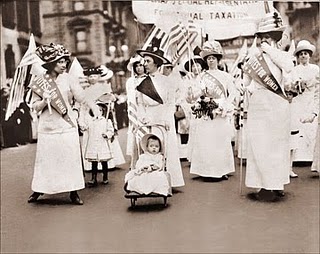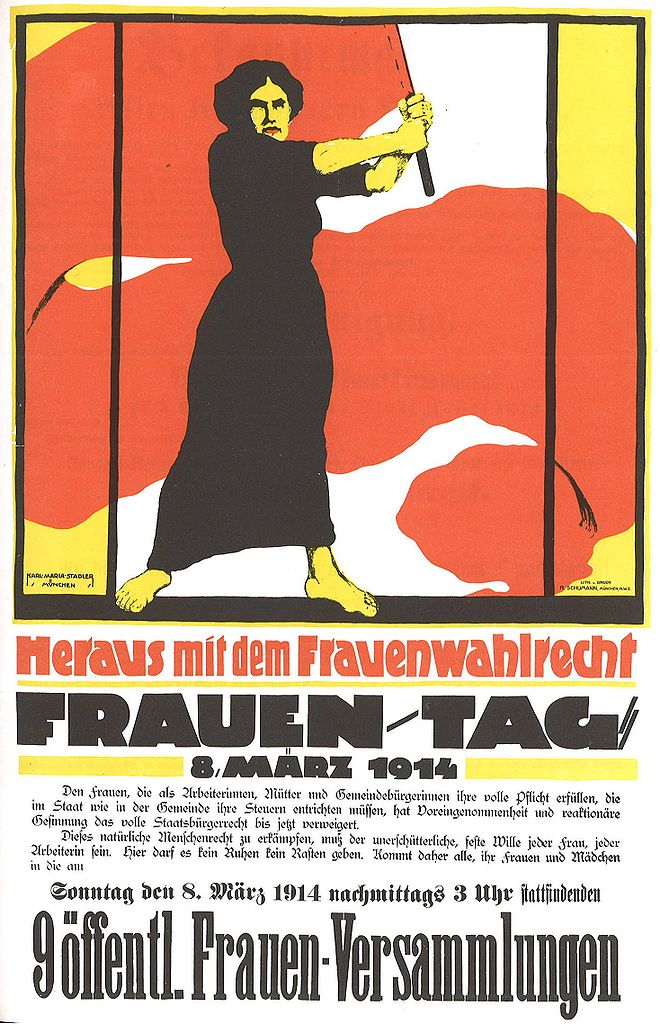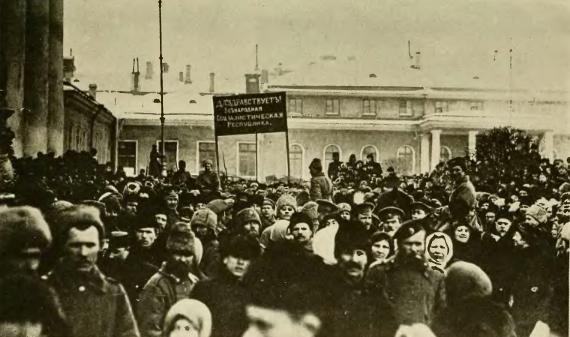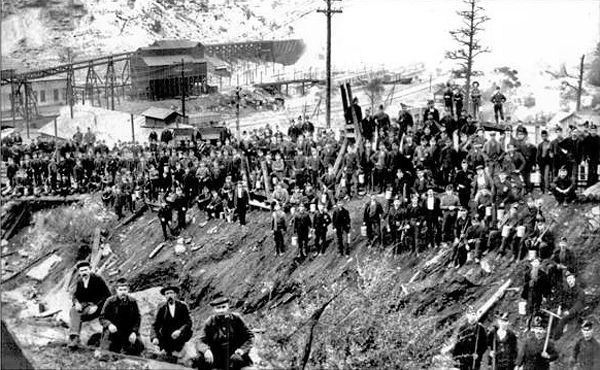Today in Labor History March 8, 1857: Women garment workers picketed in New York City, demanding a 10-hour workday, better working conditions, and equal rights for women.

Today in Labor History March 8, 1908: Thousands of workers in the New York needle trades (mostly women) launched a strike for higher wages, shorter hours and an end to child labor. They chose this date in commemoration of the 1857 strike. Their struggle became the basis for International Women’s Day.
1910s

Today in Labor History March 8, 1911: Women held the first modern International Women’s Day celebrations in Austria, Denmark, Switzerland, Germany and the U.S. IWD has its roots in the suffrage movement of New Zealand, and leftist labor organizing in the U.S. and Europe. The Socialist Party of America held the earliest Women’s Day festivities in New York, in 1909. German socialist held a similar event in 1910. They ultimately chose the date of March 8 in honor of the garment workers strikes in New York that occurred on March 8, in 1857 and 1908. The holiday was associated with far-left movements until the feminist movement adopted it in the 1960s.

Today in Labor History March 8, 1917: International Women’s Day protests in Petrograd launched the February Revolution (February 23 in the Julian calendar). The revolution lasted from February 23 to March 3 in the Julian calendar). Over 1,400 people died. Government soldiers sided with the revolutionaries and Czar Nicholas abdicated. However, the new provisional government was so unpopular that it was forced to share power with the communist Petrograd Soviet. The failures of the provisional government led to the Communist October Revolution that created the USSR.
1920s

Today in Labor History March 8, 1924: A mine disaster killed 172 coal miners near Castle Gate, Utah. 50 of the victims were Greek immigrants. The others were Italian, Welsh, Scottish, Japanese and Austrian. The oldest victim was 70. The youngest was 15. They left behind 415 widows and orphans.

March 8, 1926: 10,000 members of the Fur and Leather Workers Union, mostly women, picketed New York’s furriers’ district. They had been on strike since February, including a General Strike on February 16. Despite beatings and vehicular assaults by the police, the women fought on, winning a 10% raise and a five-day work-week.
1970s

Today in Labor History March 8, 1971: The Citizens Committee to Investigate the FBI stole 1,000 documents from the FBI office in Media, Pennsylvania. They later released the documents to newspapers, revealing the FBI’s COINTELPRO program, harassing and attacking political dissidents in the U.S. According to Noam Chomsky, 40% of the documents were dedicated to political surveillance. James Ellroy wrote about the burglary in his 2009 novel, “Blood’s a Rover.”